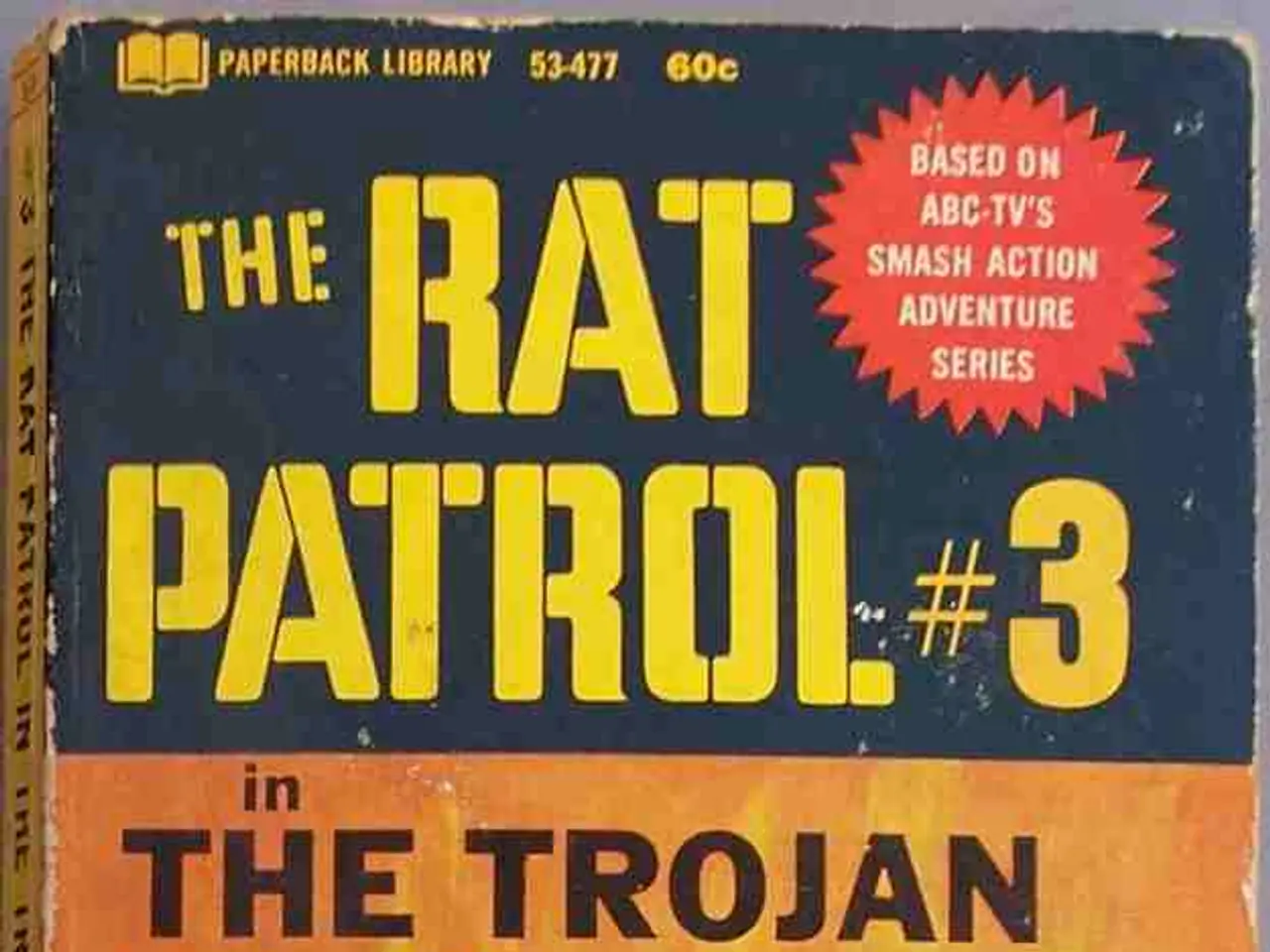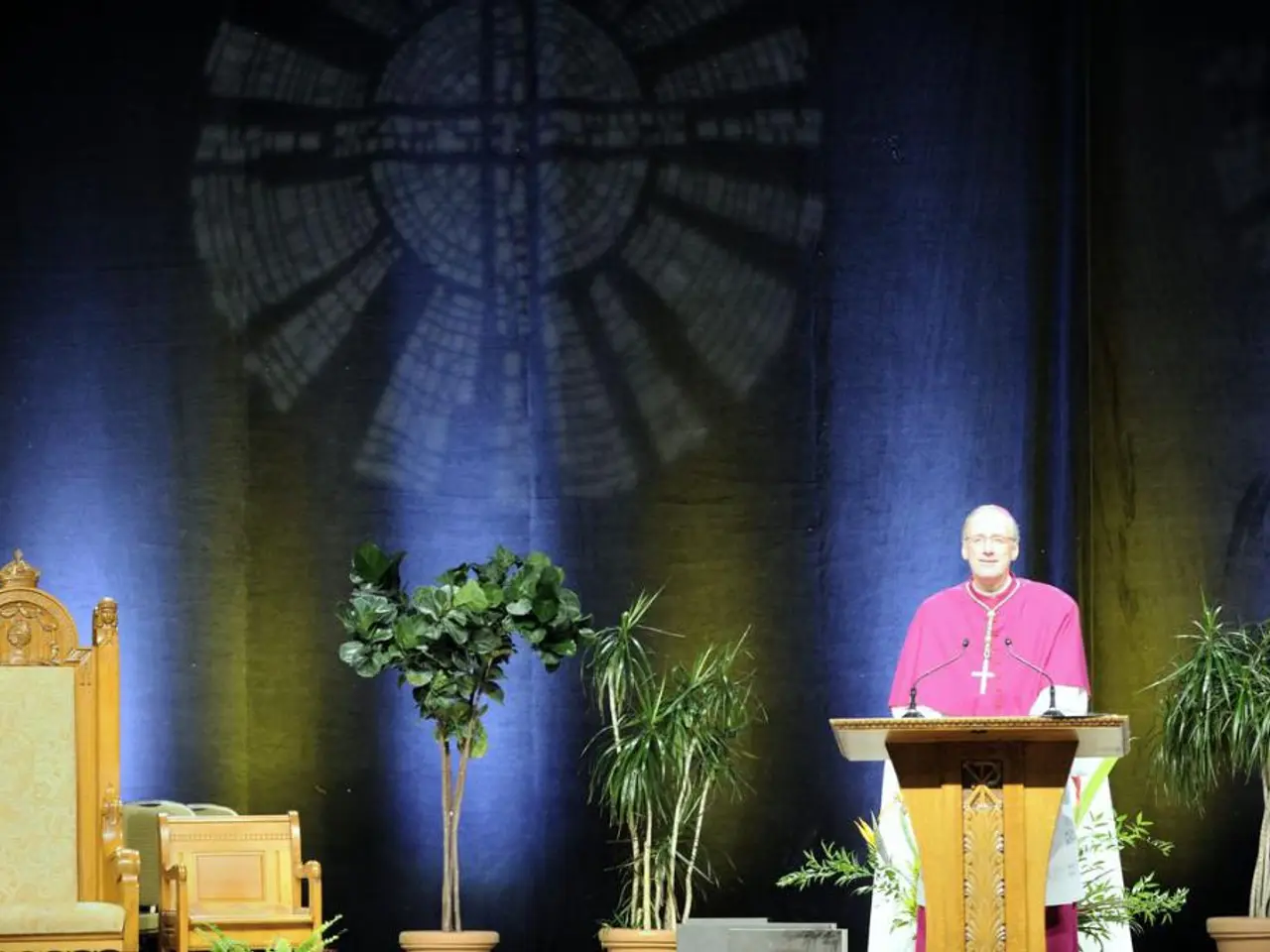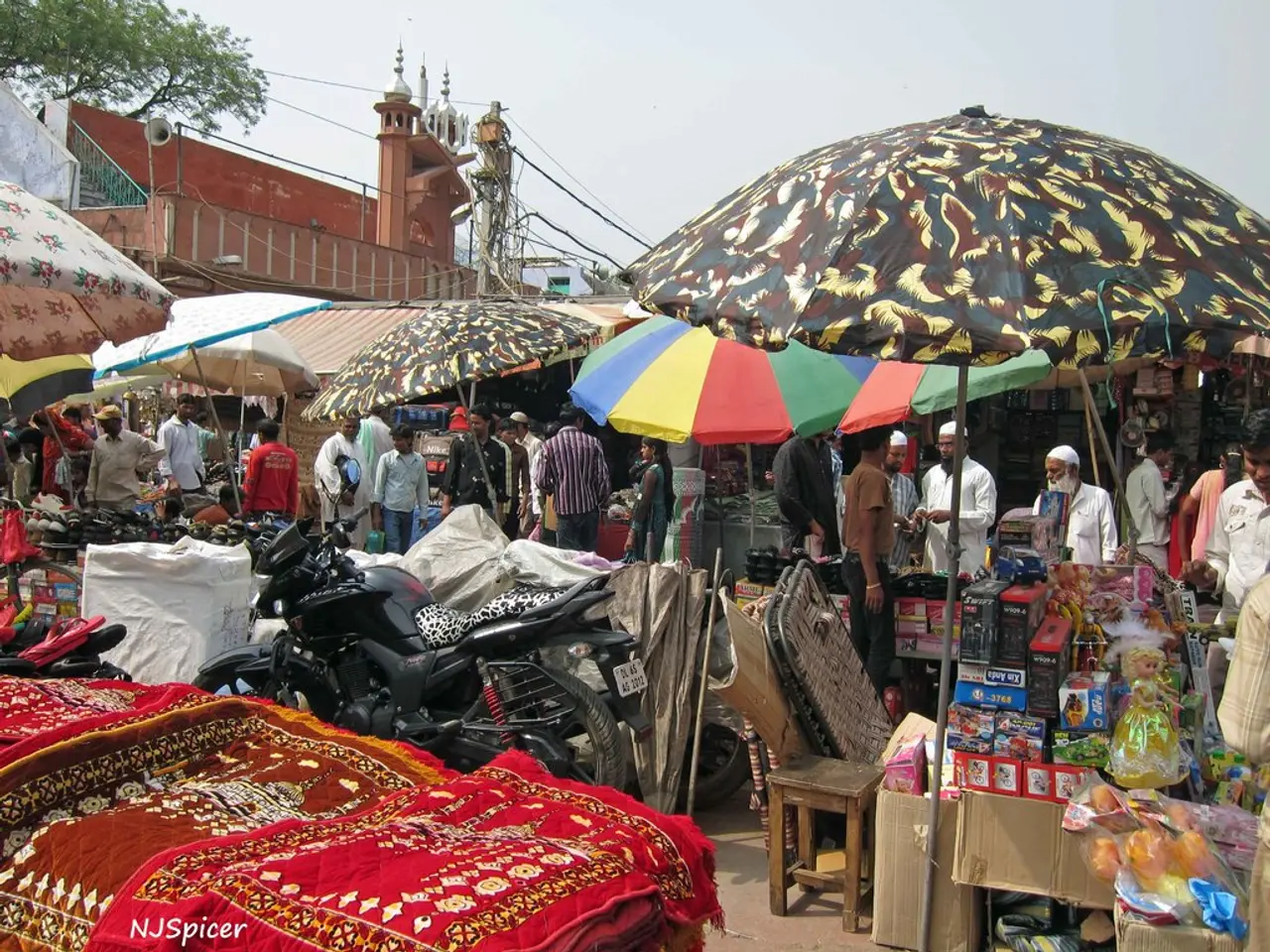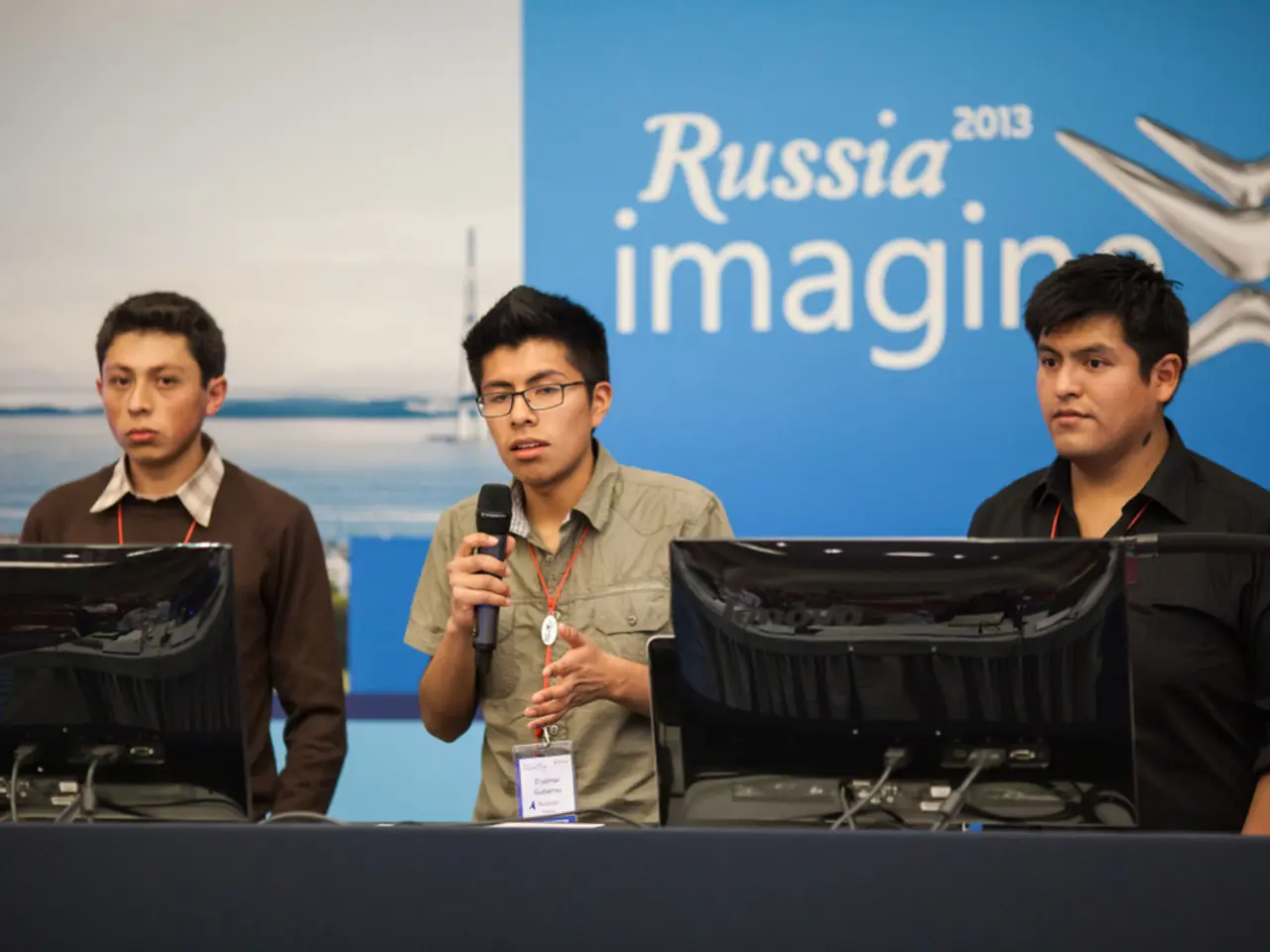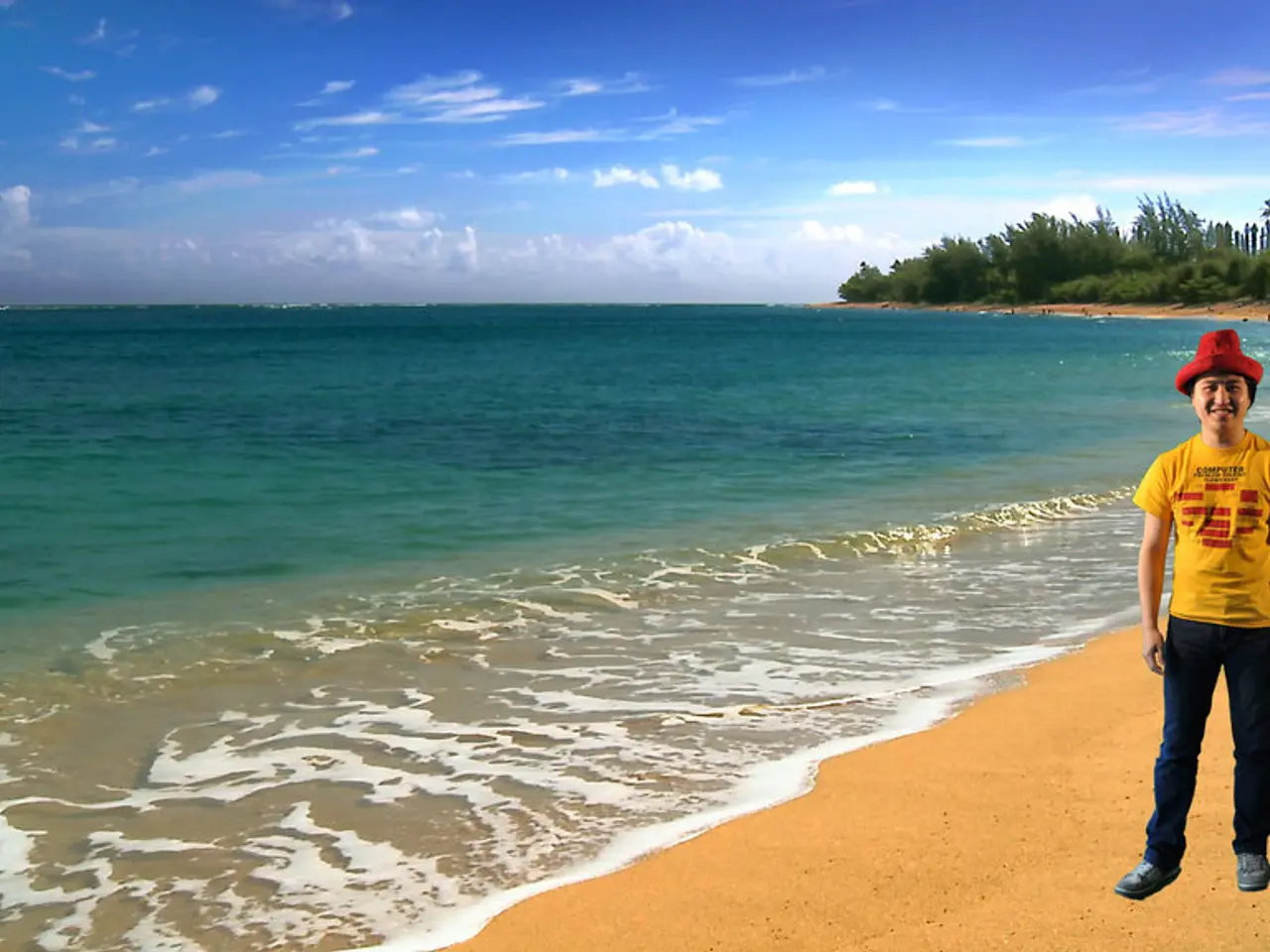Escalating uncertainty as Trump remains ambiguous about America's involvement in the Israel-Iran clash
Title: Martin, Trump, and Khamenei's Dance of Fire: A Tense Standoff Between Israel, Iran, and the U.S.
As the Israel-Iran conflict rages on for its seventh consecutive day, the international community stands on the brink, waiting for a move from the big players - especially Donald Trump. Trump has been keeping everyone in suspense, dodging questions about whether the U.S. will join in on Israel's attacks against Iranian nuclear sites.
Speaking to the press outside the White House, he curtly stated, "I may do it. I may not do it. Frankly, nobody knows what I'm gonna do." Such ambiguity continually swirls around this already volatile situation.
Later in the day, Trump revealed that Iranian officials had proposed talks in Washington, saying, "We might actually do that." But he quickly added, "It's a bit late for that gabfest," seemingly closing the door on diplomacy.
The Wall Street Journal reported that Trump had signed off on military attack plans aimed at Iran but was holding off on giving the final go-ahead, waiting for signals from Tehran indicating a possible withdrawal from its nuclear ambitions.
Trump remained cryptic when asked about the potential collapse of the Iranian regime, replying, "Sure, anything could happen." When discussing Iran's heavily fortified Fordow nuclear site, Trump commented, "We're the only ones with the firepower to obliterate Fordow if we wanted. But that doesn't mean I'm gonna."
As the world watches, European powers scramble to take diplomatic action. According to a German diplomatic source, the foreign ministers of Germany, France, and Britain will meet with their Iranian counterpart in Geneva on Friday. They plan to press the Iranians for guarantees that their nuclear program will remain civilian.
On the battlefield, the conflict rages. Israel confirmed its air force struck Iran's police headquarters, and military officials reported intercepting drones launched from Iranian territory into northern Israel and the Jordan Valley early Thursday. Meanwhile, Tehran residents clogged major highways, fleeing the capital out of fear of further escalation.
Fordow, buried under a mountain near Qom, is considered nearly impenetrable to conventional strikes without substantial U.S. support. Analysts speculate that Israel might require American military assistance to effectively take down Fordow.
Iran's Supreme Leader Ayatollah Ali Khamenei, 86, issued a stern warning during a televised address - his first since Friday - stating that "any U.S. military intervention will undoubtedly unleash uncontrollable chaos and destruction." He vowed that "the Iranian nation will not surrender."
Although Russian President Vladimir Putin refused to comment on a potential U.S.-Israel attempt to remove Khamenei, he did express strong concern about the escalating situation.
Israeli jets have been launching waves of airstrikes over the past 24 hours, targeting military and missile production facilities in Tehran and western Iran. Meanwhile, Iran's mission to the United Nations dismissed Trump as "a washed-up warmonger searching for relevance."
With diplomatic overtures, military threats, and regional tensions reaching a boiling point, the world anxiously awaits the next move from Washington and Tehran. Will America and Israel launch a strike, or will diplomacy prevail? Only time will tell.
War-and-conflicts surrounding the Israel-Iran standoff have sparked intense political disputes, with negotiations and potential military actions dominating general news headlines. The international community watches as diplomatic maneuvers between European powers and Iran unfold, while the U.S., under President Trump's leadership, remains cautious about engaging in direct conflict, all while Iran's nuclear sites remain a contentious issue.
